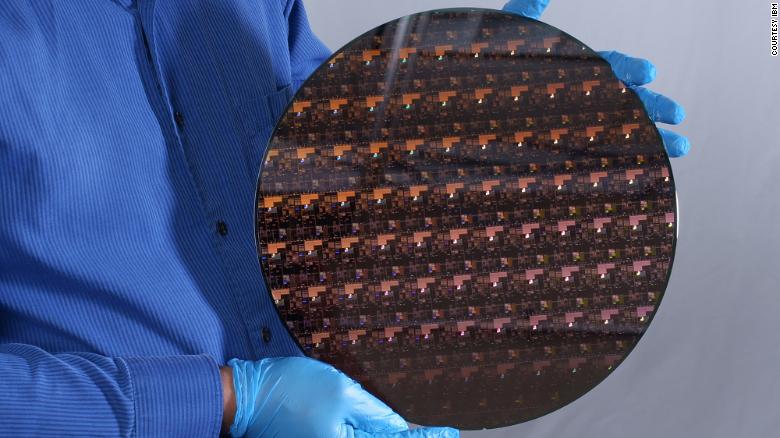American tech giant IBM claims a 2nm chip breakthrough after successfully creating a 2nm computer chip in a lab test.
As per the news, the chip was developed in IBM’s Albany Research lab in the US. It is the world’s smallest and the most powerful chip yet.
In semiconductor terminology, nm stands for nanometers which indicates the size of transistors. The lower the size, the more transistors fit in a chip which points to more performance capacity.
IBM claims that its 2nm SoC chip will increase computing performance by 45%. But it will also be energy efficient with a 75% decrease in energy consumption. After it comes into production, It will signify a major leap in power efficiency over the current 7nm chip available in the market.
This also means smartphones could see a major improvement in their power battery efficiency. Apart from its processing power under the hood, IBM claims the latest chip will ‘quadruple’ the battery efficiency of smartphones. Adding further, and they may need one full charge in four days once this chip comes into use.
Read: Global Chip Shortage and Its Impact on Manufacturing Industries
A Major ‘Breakthrough’
Peter Rudden, Research Director at market intelligence firm International Data Corporation has branded the 2nm chip a “breakthrough”. It is the world’s smallest and the most powerful chip yet.
Most computer chips used at present are either 10nm or 7nm. IBM’s 2nm chip will serve for remarkable development in computing technology. It will increase the power and efficiency of devices such as smartphones, computers, and every electronics that requires a chip on it.
Director of IBM Research Dario Gil has said of their latest innovation, “There are not many technologies or technological breakthroughs that end uplifting all boats, this is an example of one.”
Do Read: Complete Smartphone Specifications Guide
IBM’s vice president of hybrid cloud research Mukesh Khare said, “the 2nm chip would contain 50 billion transistors, each about the size of two DNA strands.”
More transistors in a chip mean more brainpower. It will translate into faster response and data transfer. Besides, It will help significantly improve AI, AR, VR, and IoT in the future.

It expected that the 2-nanometer chips will move into large-scale production in late 2024 or 2025. This means it will not mitigate the current shortage of chips which has taken a toll on manufacturing industries.
However, the future for consumer electronics is set for a major revolution with the 2nm chip in a few year’s time.
The tussle between chipmakers such as China’s SMIC, Qualcomm, and Intel has evolved into a global competition but IBM’s 2nm chip could usher in a fresh contest. Check out: Qualcomm Snapdragon 888 SoC >>
What do you think of this 2nm chip’s development? Do you think Intel, Qualcomm, or any other company could produce an even more advanced chip to confront IBM? What are your opinions on it? Let us know in the comments section below.













